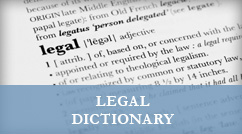Common Carrier Liability
The Federal government has created regulations regarding the liability to passengers injured while using a common carrier. A common carrier is one who represents to the public that its business is one of transporting persons or cargo from place to place for compensation, and such services are generally open to the public. Generally, commercial buses, ferries, trains, and airplanes are considered common carriers. There are some exceptions to this definition, such as with certain airplanes, vessels, “scenic railroads,” or private charter transportation. In most situations, a common carrier is generally required to use the highest degree of care, diligence, and vigilance in the transport of its passengers to the appropriate destination. The carrier must have the necessary equipment and a reasonable degree of skill to carry out the transportation of passengers.
Related Content
- Airplane Accidents
- Causes of Airplane Accidents
- Common Carrier Liability
- Economy Class Syndrome
- Immediate Crash Investigation






Recent Comments